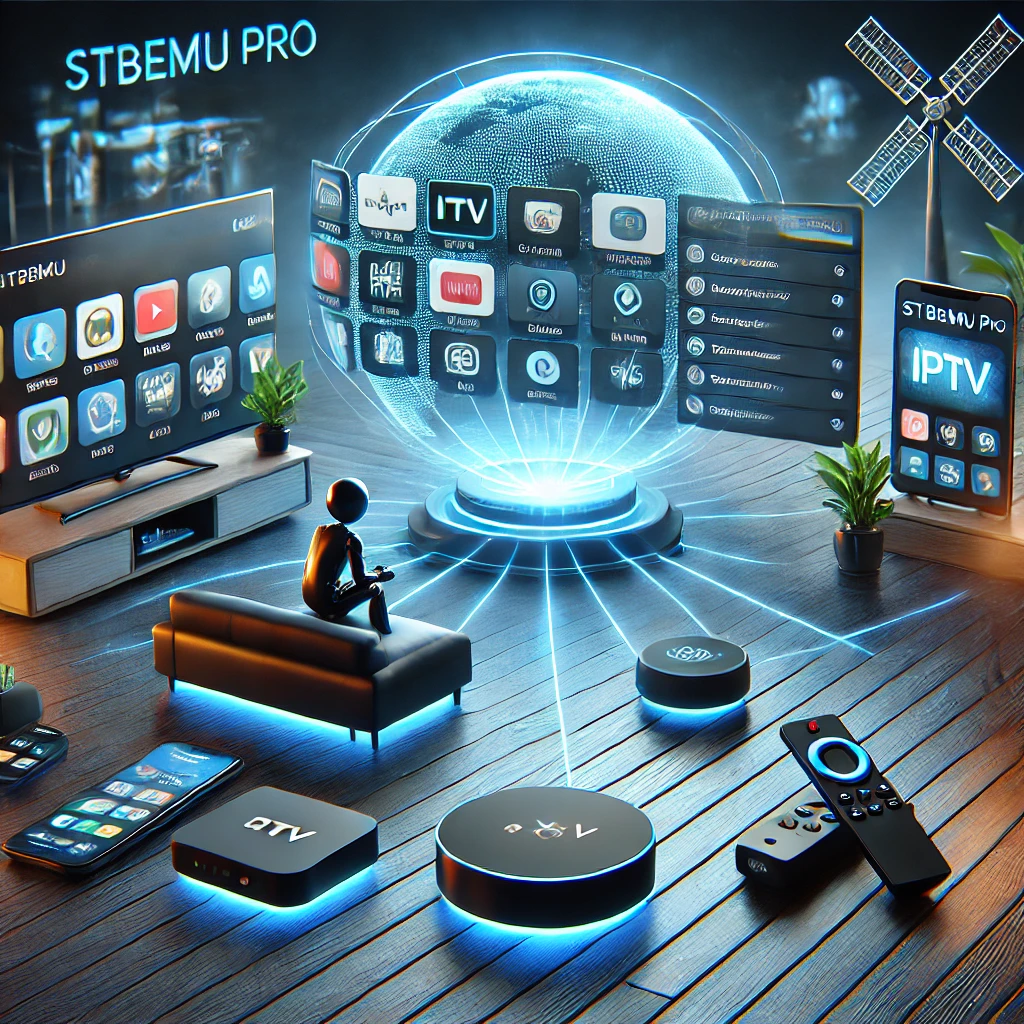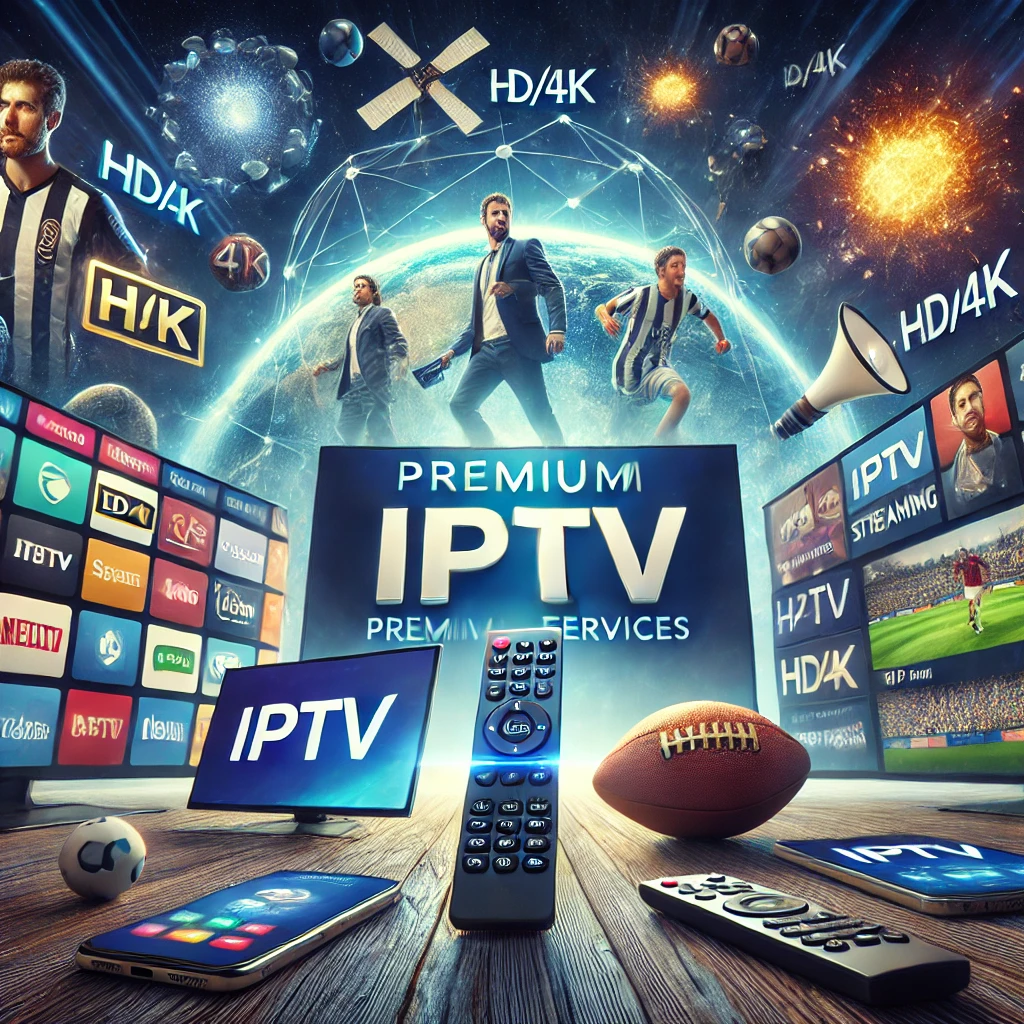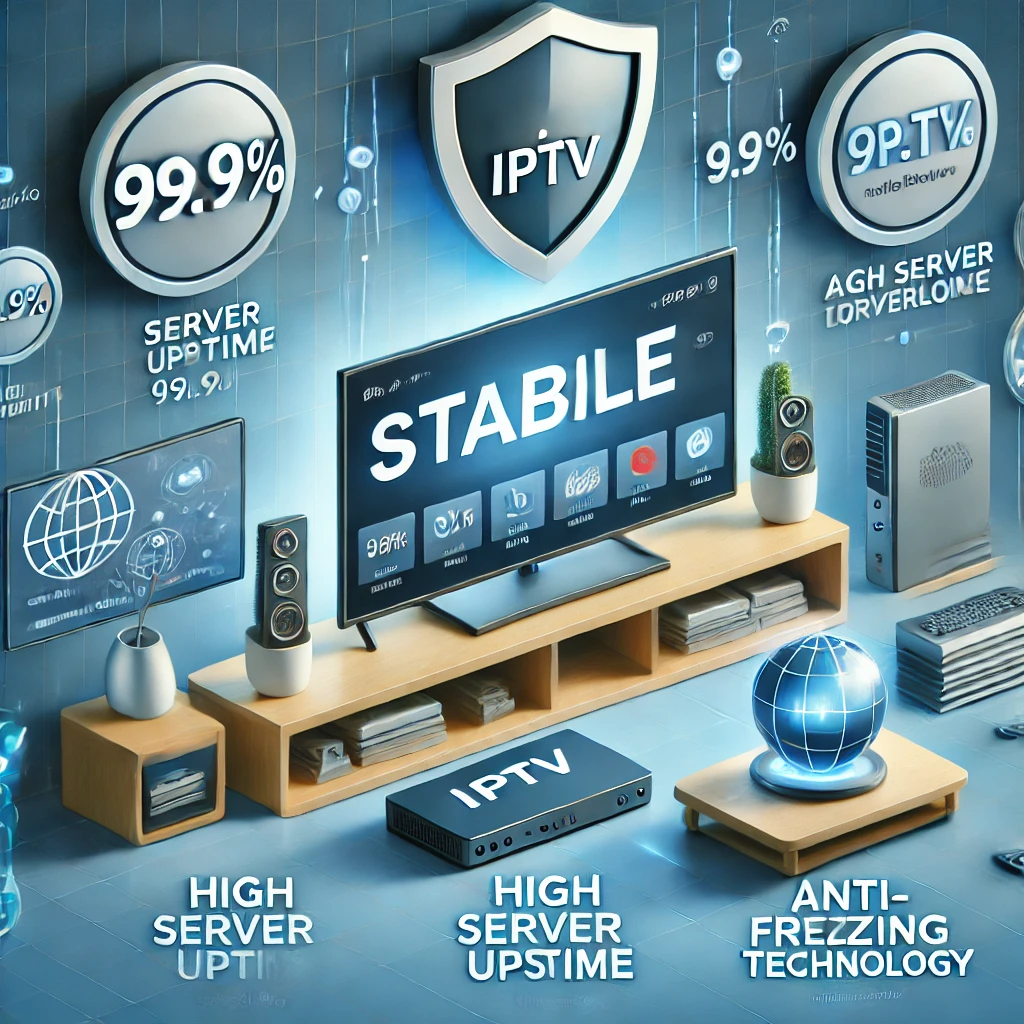IPTV Box: The Ultimate 2024 Guide to Effortless Internet TV Streaming
Table of Contents
What is an IPTV Box?
An IPTV box is a device that enables users to stream live TV, on-demand shows, movies, and other video content over the internet rather than using traditional broadcast methods like cable or satellite. IPTV stands for Internet Protocol Television, where television services are delivered via IP-based networks, allowing users to access a wide variety of content from global sources, often at a lower cost than conventional TV services.
The IPTV box acts as a bridge between the internet and your TV, converting streamed video data into content that your TV can display. With the increasing shift toward internet-based entertainment, IPTV boxes are becoming a popular solution for users who want flexibility in their viewing experience without being tied to expensive cable packages.
Key Benefits of an IPTV Box
- Access to Global Content
IPTV boxes allow users to watch channels and shows from different countries, often offering a wider selection than what is available through standard TV providers. - Cost Savings
Compared to traditional cable TV services, IPTV solutions tend to be more affordable. Users can often subscribe to specific channels or services that fit their needs, avoiding the costs associated with large cable bundles. - On-Demand Flexibility
With IPTV, users have more control over when and how they watch content. Whether it’s live TV or on-demand services, viewers can choose what they want to watch, when they want to watch it. - High-Quality Streaming
IPTV providers offer high-quality streaming, often supporting HD and 4K content, ensuring an excellent viewing experience as long as the user has a reliable internet connection. - Customizable Packages
Users can often select subscription packages based on the channels or genres they prefer, such as sports, movies, or international programming, making it a more personalized TV experience.
The IPTV box isn’t just a trend—it’s the future of TV viewing. It represents the merging of traditional broadcasting with the flexibility and convenience of the internet. As more people cut the cord and move away from cable services, IPTV boxes are quickly becoming the go-to solution for affordable, flexible, and high-quality television.
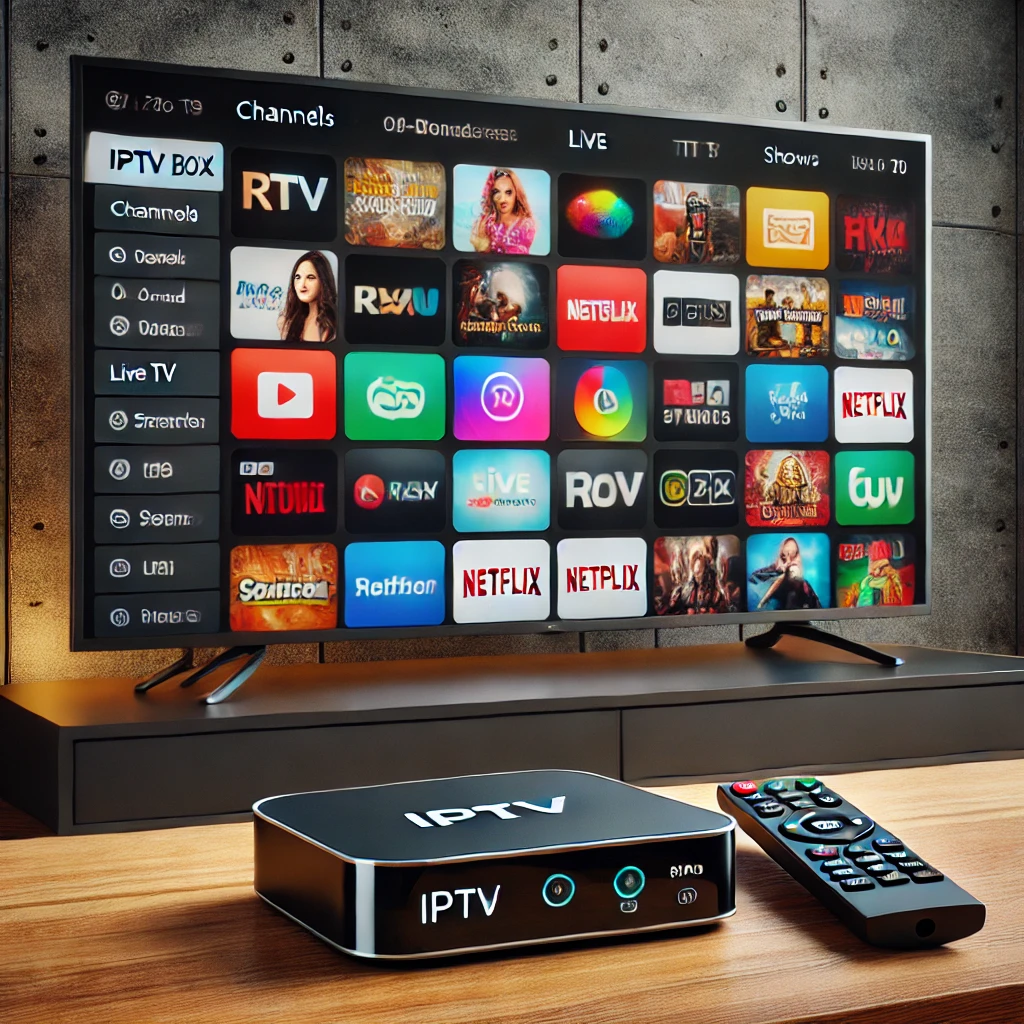
How Does an IPTV Box Work?
An IPTV box functions as a device that receives video content via the internet and displays it on your television. Instead of receiving signals from traditional satellite or cable methods, IPTV relies on Internet Protocol (IP) to deliver media content. This technology provides users with far greater flexibility in terms of what they can watch and when they can watch it.
Definition of IPTV Box
An IPTV box is a small device that connects to your television and streams content directly from the internet. It acts as a receiver for internet-based TV services and converts the data into viewable content on your TV screen. The IPTV box usually requires a stable internet connection, either via Wi-Fi or an Ethernet cable, to ensure smooth streaming without interruptions.
The Technology Behind IPTV Box
IPTV technology uses a dedicated IP-based network to deliver TV programs and video content. The system works by streaming content in real-time, allowing viewers to watch live broadcasts or select on-demand videos. IPTV services transmit video data in packets, much like how web content is delivered to a browser. This makes IPTV much more dynamic and customizable than traditional television broadcasting systems.
Connection Requirements for IPTV Box
- Internet Speed: A minimum internet speed of 10-15 Mbps is recommended for smooth HD streaming, while 25 Mbps or more is ideal for 4K content.
- Wired vs. Wireless: An Ethernet connection is preferred for stable streaming, but many IPTV boxes also support Wi-Fi.
- Router Configuration: A good-quality router is necessary to handle the bandwidth required for high-quality streaming. Routers with dual-band or mesh systems are recommended for larger homes.
Why Choose an IPTV Box Over Traditional TV Services?
With the growing popularity of internet-based streaming services, many people are turning away from traditional cable or satellite TV providers. An IPTV box offers numerous advantages that make it an attractive alternative for users looking for more flexibility, affordability, and access to global content. Here are several reasons why you should consider using an IPTV box over traditional TV services:
IPTV Box vs. Cable TV: Key Differences
One of the major differences between IPTV and traditional cable TV is how the content is delivered. Cable TV relies on a physical infrastructure (cables, satellites) to transmit channels, whereas IPTV transmits content through the internet. This difference results in several advantages for IPTV:
- Greater Flexibility: IPTV boxes allow users to access content from around the world. With cable TV, you are often limited to the channels provided by your local service provider.
- On-Demand Viewing: IPTV enables users to watch their favorite shows and movies on their schedule. Traditional cable TV often requires viewers to stick to fixed broadcast schedules.
- Device Compatibility: IPTV boxes work on various devices, including smartphones, tablets, and computers, while cable TV is typically limited to televisions.
Cost-Effectiveness of IPTV Box
An IPTV box offers significant savings compared to traditional cable TV packages. Many IPTV services provide access to thousands of channels and on-demand content for a fraction of the price of cable subscriptions. Additionally, IPTV users can often pay for specific channels or genres of content, avoiding the high cost of bundled packages offered by cable companies.
Streaming International Channels
One of the biggest advantages of an IPTV box is the ability to stream international channels. Whether you’re interested in watching live sports, foreign news, or international entertainment, an IPTV box provides access to a wide variety of global content that may not be available through traditional TV providers. This is especially beneficial for expatriates or people who want to stay connected to their home country’s media.
Access to On-Demand Content
Unlike traditional TV, which relies heavily on live broadcasts, IPTV allows users to watch content on-demand. This means you can view shows, movies, and events whenever you want, without having to adhere to a network’s schedule. IPTV also offers time-shifted media, where viewers can watch live broadcasts after they’ve aired, making it easier to catch up on content you might have missed.
Key Features of a Good IPTV Box
When selecting an IPTV box, there are several key features to consider that can greatly enhance your streaming experience. The quality and functionality of an IPTV box can vary, so understanding these features can help you make an informed decision. Below are some of the most important features to look for when choosing the best IPTV box for your needs:
Compatibility with Apps and Services
One of the most important factors to consider is the compatibility of the IPTV box with various streaming services and apps. A good IPTV box should support popular streaming platforms like Netflix, Hulu, Amazon Prime Video, and YouTube. Additionally, it should be capable of running IPTV apps that provide access to live TV and on-demand content. Some boxes come with their own app stores, allowing users to download and install third-party apps for a more customized experience.
Video Quality and Resolution
The quality of the streaming content depends heavily on the video resolution supported by the IPTV box. For a high-quality viewing experience, look for an IPTV box that supports at least HD (1080p) streaming. If you have a 4K TV and a fast internet connection, opt for an IPTV box that supports 4K UHD resolution, ensuring you get the best picture quality available.
- HD Streaming: Standard for most content, offering 1080p resolution.
- 4K UHD Streaming: Provides ultra-high-definition viewing, available on select IPTV boxes with strong internet connectivity.
- HDR (High Dynamic Range): Enhances color and contrast, providing a richer viewing experience.
User-Friendly Interface and Navigation
A good IPTV box should be easy to use, with an intuitive and user-friendly interface. Many IPTV boxes offer customizable menus, allowing you to arrange your favorite channels and apps for quick access. Remote controls with voice commands or easy-to-use navigation buttons can also enhance the overall user experience, making it easier to browse through your content.
Storage and Recording Capabilities
If you want to record live TV or download content for offline viewing, look for an IPTV box with DVR (Digital Video Recorder) functionality. Some IPTV boxes come with built-in storage, while others allow you to connect an external hard drive for additional storage. The ability to schedule recordings and pause live TV is a useful feature for viewers who don’t want to miss their favorite shows or sports events.
Connectivity Options
A reliable IPTV box should offer various connectivity options to ensure stable streaming and compatibility with different devices. Common connectivity options include:
- HDMI Ports: For connecting the IPTV box to your TV with high-definition video output.
- USB Ports: To connect external storage devices or other peripherals.
- Ethernet Port: For a wired internet connection, which provides a more stable and faster connection compared to Wi-Fi.
- Wi-Fi Support: Wireless connectivity is essential for users who don’t want to rely on a wired connection.
- Bluetooth: Some IPTV boxes support Bluetooth for connecting wireless peripherals like game controllers or headphones.
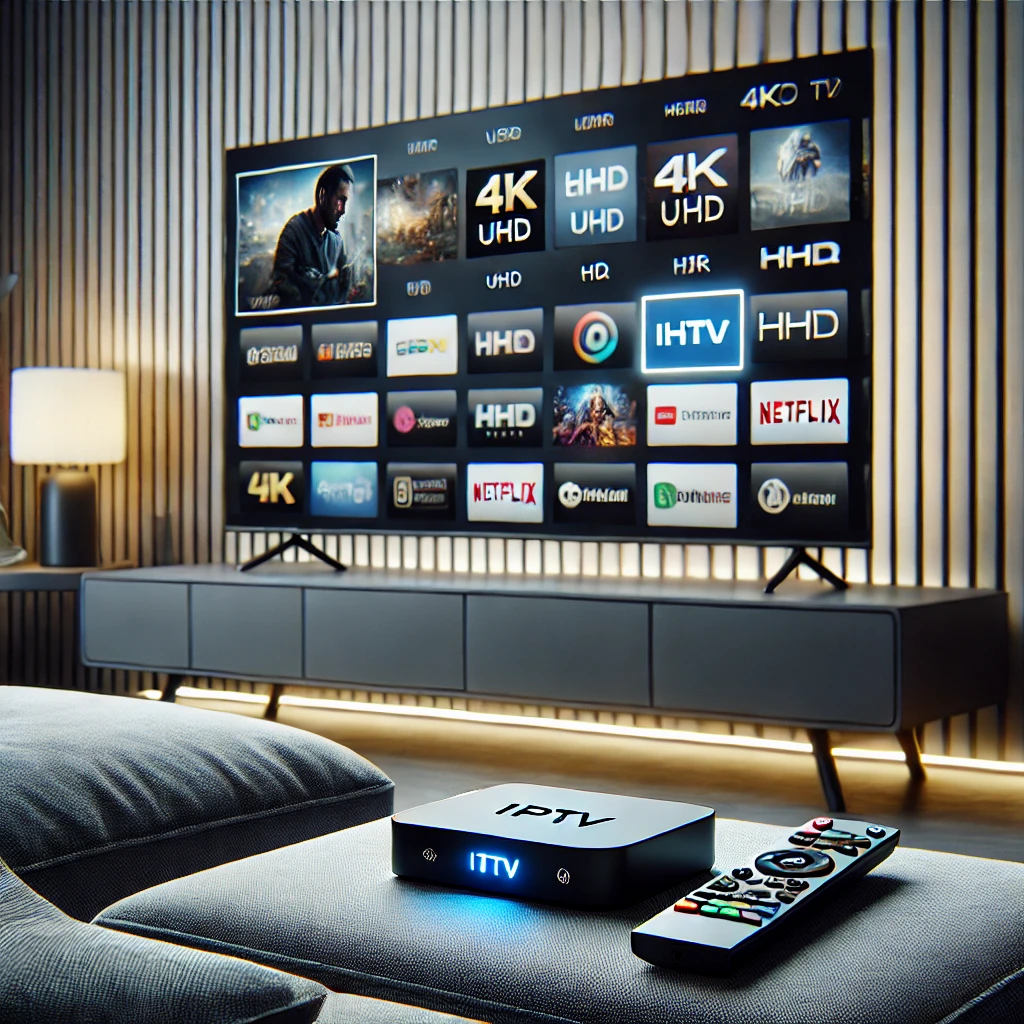
How to Choose the Best IPTV Box for Your Needs
With so many options available in the market, selecting the right IPTV box can seem overwhelming. However, by focusing on the features that matter most to your viewing habits, you can make a smart and informed decision. Here are some essential factors to consider when choosing the best IPTV box for your needs:
Factors to Consider When Buying an IPTV Box
- Price Range: Set a budget before shopping. While some boxes offer premium features at a higher price point, there are affordable options that deliver excellent performance.
- Performance: Look for boxes that offer fast processors, sufficient RAM, and storage space. This ensures smooth streaming without buffering, especially for 4K content.
- Live TV and VOD Support: Ensure the IPTV box you choose supports both live TV channels and video-on-demand services. Many IPTV apps offer a combination of these features.
- Operating System: Consider the OS the box uses, whether it’s Android, Linux, or custom software. Android boxes, for example, offer access to the Google Play Store and a wide range of apps.
- Remote Control and Navigation: User-friendly remote controls with voice search functionality can make navigation faster and easier. Some IPTV boxes also allow smartphone control or voice-activated commands.
- Software Updates: Check for regular software updates, as these keep your device secure and enable new features.
Popular IPTV Box Brands and Models
There are several popular brands of IPTV boxes available, each offering different features and functionalities. Here are a few notable ones to consider:
- Fire TV Stick (Amazon): A compact, affordable option with access to apps, streaming services, and IPTV apps. It supports HD and 4K streaming, depending on the model.
- MAG Box: Known for its high performance, MAG boxes are designed specifically for IPTV services and are a popular choice for live TV streaming.
- Nvidia Shield TV: This premium option is ideal for gamers and 4K streaming enthusiasts. It offers fast performance, ample storage, and excellent app compatibility.
- Roku Streaming Stick: Roku offers a user-friendly interface with access to thousands of streaming apps, including support for IPTV services. It is one of the more affordable options.
- Xiaomi Mi Box S: A budget-friendly Android TV box that offers 4K streaming and compatibility with Google Assistant, making it a good choice for cost-conscious users.
IPTV Box Setup and Installation
Setting up an IPTV box is relatively straightforward. Most devices follow a similar process:
- Connect the IPTV box to your TV via an HDMI cable.
- Power on the IPTV box and connect it to your home internet, either via Wi-Fi or Ethernet cable.
- Install any necessary apps or IPTV services from the app store.
- Configure your IPTV settings by entering your provider’s login credentials.
- Once set up, you can browse channels and start streaming content immediately.
Legal Considerations
While IPTV boxes themselves are legal, it’s important to be aware of the legality of the services you access. Always use licensed IPTV providers, such as StateIPTV.com, to ensure you are accessing legal, high-quality content. Avoid pirated or unauthorized services, as they can lead to legal issues and provide lower-quality streams that may be unreliable.
Can I Use an IPTV Box Anywhere in the World?
Yes, as long as you have a stable internet connection. Some content may be geo-restricted, but you can use a VPN to bypass these restrictions.
What Channels Can I Get on an IPTV Box?
It depends on the IPTV provider. Services like StateIPTV.com offer sports, news, movies, international channels, and specialty content.
How Do I Troubleshoot IPTV Box Issues?
Check your internet speed (15 Mbps for HD, 25+ Mbps for 4K).
Restart your router and IPTV box.
Update firmware and close unnecessary apps.
Use a wired connection for better stability.
How Do I Ensure Smooth Streaming?
Use high-speed internet (15+ Mbps for HD).
Prefer a wired connection over Wi-Fi.
Choose a reliable IPTV provider like StateIPTV.com.
Consider using a VPN for unrestricted access.
RELATED POSTS
View all
